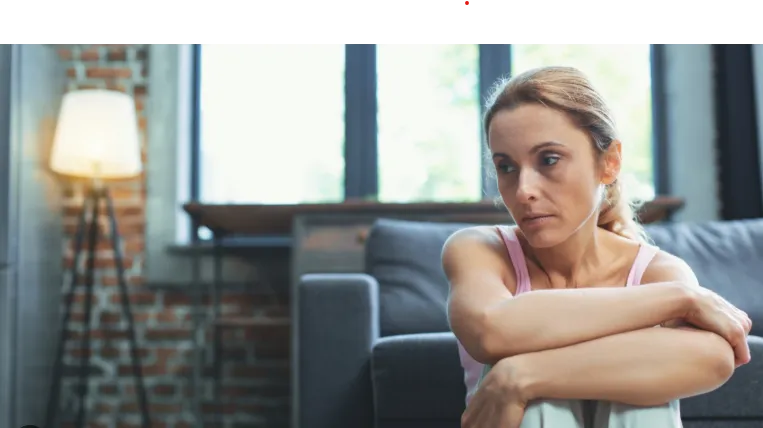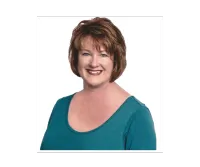Where to Begin When Caregiving Feels Like Too Much
You’re a Caregiver
(Even If No One Told You Yet)
Caregiving isn’t just hands-on support.
If you’re managing appointments, asking the doctor questions, coordinating help, paying bills, or even just lying awake at night worrying about what comes next, you’re caregiving even if you live far away. Even if you “just check in” over the phone. Even if you feel like you’re not doing enough.
Your presence, your voice, and your effort matter more than you know.
Here at The Aging Society, we help you step confidently into that role with tools, clarity, and the right words, so you can honor your loved one, protect your own well-being, and avoid the spiral of “what ifs.”
A Story That Might Feel Familiar
Emily sat in her car outside her mom’s house, hands still on the wheel, heart pounding.
Her mom had left the stove on again, this time with a dish towel too close to the flame. Nothing happened, but it shook her.
She knew things had to change. But when she brought it up over Sunday dinner, her brother rolled his eyes: “She’s fine.” Her sister changed the subject.
Now Emily was stuck in the middle, carrying her mom’s safety, her siblings’ denial, and her own fears.
What kind of care did her mom need? Could they afford it? And how could she convince her family without another fight?
If you’ve felt that weight, you’re not alone, and you don’t have to carry it by yourself anymore.
Start With Something Small:
One Small Shift
Start With Something Small: One Small Shift.
A simple daily email that makes caregiving feel lighter, starting today. Caring for an aging parent can feel like you’re juggling a hundred decisions at once, while still trying to keep the peace, protect your loved one’s dignity, and hold your own life together.
✅ A short story you’ll recognize from your own life
✅ One tool, script, or mindset shift that made life easier for another caregiver
✅ A small action you can take right now to make things lighter
It’s not theory, it’s what’s actually worked for hundreds of families. It’s short. It’s doable. And it’s the quickest way to start feeling less alone.
Everyone Carries Caregiving Differently
Some carry it all silently and never ask for help.
Some are tired of being the only one doing anything.
Some of us research everything before we make a move.
And some plan everything, then collapse when it all falls on them.
No matter how caregiving shows up in your life, there’s a place for you here.
You Are Here
Find The Path That Feels Right For You
For the Ones Who Need to Get It Right
Thoughtful tools for when the stakes feel high.
For the Ones Who Carry It All Quietly
Gentle support and scripts when only you notice.
For the Ones Who Are Tired of Doing It Alone
Real talk and relief when caregiving has become solo
For the Over-Responsible Ones
Practical systems and relief when burnout is looming.
Visit the Resource Center (All Access)
This isn’t just a collection of links. It’s a support system, designed to help you move forward with confidence, one decision at a time.
I was drowning in Google searches and family group texts going nowhere. The Aging Society helped me figure out not only what my mom needed, but how to get my siblings to listen. I wish I had found this sooner".
"Every other site overwhelmed me with too much information. This felt like someone walking beside me with calm, clarity, and a plan. The guides are gold, but the family tools? Life changing."
"This isn’t just a website. It’s a lifeline. From decision checklists to sibling support, it’s helped me feel less alone and more capable in every step of this journey.."
"I didn’t even realize I was a caregiver until I took the first quiz. Suddenly everything made sense, and I knew where to start. It was the first time I felt less alone in this whole process."
"Before finding this, I was drowning in group texts with my siblings and endless online searches. Now I have a plan, the right words to start conversations, and the confidence to take the next step."
"The tools here don’t just give you information—they make it feel doable. From the match guide to the family scripts, I finally feel like I can handle what’s ahead without losing myself in the process."
See Our Latest Blog Posts
Stay up to date with fresh insights and helpful tips in our latest blogs.
Whether you’re looking for guidance, real-life strategies, or just a little encouragement along the way,
our blog is here to give you practical support you can actually use.

Why Caregiver Guilt Is So Common, And How to Quiet the Voice That Says You're Not Doing Enough"
Caring for a loved one is one of the most selfless roles a person can take on. Yet despite the compassion and commitment involved, caregivers often wrestle with a heavy and persistent burden: guilt. This quiet, internal voice tells them they’re never doing quite enough, even when they’re giving their all.
Let’s explore why caregiver guilt is so widespread, and more importantly, how to silence that nagging voice so you can continue caring with confidence and peace of mind.
Why Caregiver Guilt Is So Common
Guilt among caregivers is not just common, it’s practically universal. This emotional response stems from a complex web of personal expectations, societal pressure, and the deeply emotional nature of caregiving.
Here are the main reasons why guilt shows up so often in caregiving:
Unrealistic Expectations
Many caregivers hold themselves to impossible standards. They believe they should be endlessly patient, always available, and capable of handling every challenge perfectly.
Comparisons With Others
Seeing other caregivers who seem more organized or emotionally composed can make one feel inadequate, even if those comparisons are unfair or incomplete.
Past Regrets
Caregivers may dwell on past decisions, feeling guilty about actions they took, or didn’t take, even if those decisions were reasonable at the time.
Lack of Recognition
Without external validation, many caregivers begin to question whether they’re truly doing a good job, feeding into feelings of guilt and self-doubt.
How to Quiet the Voice of Guilt
Silencing guilt doesn't mean ignoring your feelings. Instead, it involves recognizing those emotions and replacing harsh self-judgment with realistic, compassionate perspectives.
Here are effective ways to manage and reduce caregiver guilt:
Acknowledge Your Efforts
Remind yourself daily of what you are doing, not just what you feel you aren’t. Create a gratitude journal to document small wins and heartfelt moments.
Challenge Negative Thoughts
When guilt creeps in, question it. Ask yourself: “Is this true, or am I being too hard on myself?” Replace guilt-driven thoughts with more balanced ones.
Set Realistic Boundaries
It’s okay to say no. You cannot pour from an empty cup. Setting limits protects your energy and ultimately helps you be a more present caregiver.
Seek Support
Talking with others who understand your situation through support groups or counseling can validate your feelings and offer new perspectives.
Practice Self-Compassion
You are human, and perfection is not required. Be as kind to yourself as you would be to a friend in the same position.
Final Thoughts
Caregiver guilt may be common, but it doesn’t have to control your experience. By identifying its sources and using mindful strategies, you can shift your mindset and find greater peace. Remember: doing your best, with love and dedication, is more than enough.
© 2025 The Aging Society. All rights reserved.
For families navigating senior care, find clarity, compassionate support, and trusted resources for senior care.
It all starts with One Small Shift.
